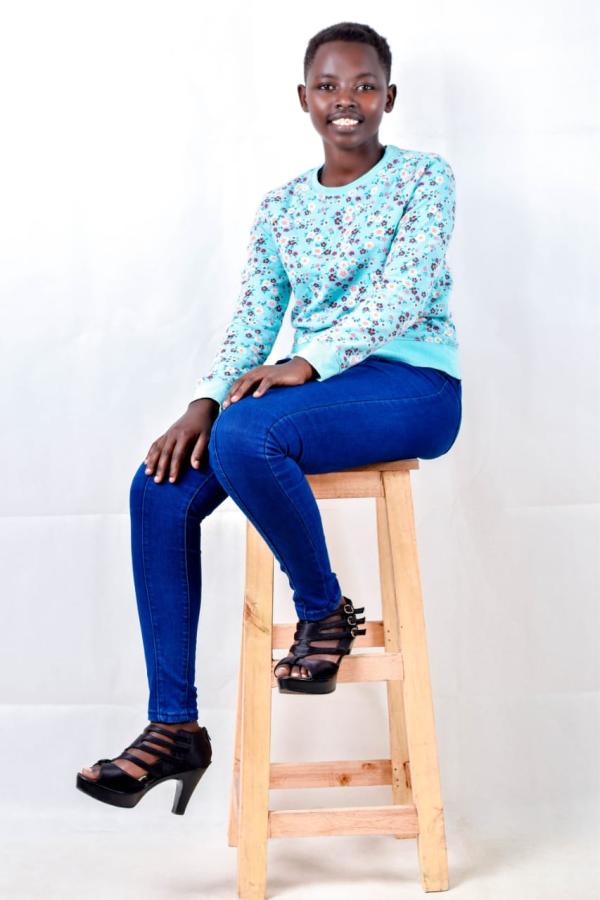KID REPORTERS’ NOTEBOOK
How to Be a Changemaker
Munveer with Bill Drayton, the founder and chief executive officer of Ashoka
Progress brings new challenges to be solved. How can young people help make the world a better place? I recently spoke with Bill Drayton, the founder and chief executive officer of Ashoka. The nonprofit organization works to support kids with life-saving ideas.
Drayton and his team at Ashoka provide young people around the world the tools to build their confidence and get the support they need to advance society. My sister, former Kid Reporter Manat Kaur, is an Ashoka Young Changemaker. She introduced me to Drayton.
Ashoka supports social entrepreneurs through leadership skills, teamwork, and empathy. Founded in 1980, the organization currently has more than 300 employees. Four thousand Fellows across 95 countries work on areas such as criminal justice, climate mitigation, and economic development.
Rebecca Naisimoi, for example, is an Ashoka East Africa-affiliated Changemaker in Kenya. The twelth-grader is educating people in her rural Maasai village about the ways that environmental degradation and climate change contribute to hunger and poverty.
“If I do succeed in my venture, the world will be beautiful,” Rebecca says. “The cattle will be fat, the children well-nourished. There will be many more trees. The markets will be full of farmers’ produce, and the wild animals will be many.”
Most Ashoka Fellows see their ideas affect policy change in their respective countries. Their ideas are also successfully replicated by others.
Below are higlights from my conversation with Drayton, which has been lightly edited for length and clarity.

Rebecca Naisimoi an Ashoka East Africa-affiliated Changemaker in Kenya, is helping her rural community fight hunger and poverty.
What inspired you to start Ashoka?
When I was 19, I drove from Munich to India with three friends. Suddenly, all the statistics about the issues of the world became very real. We saw a lot during our drive, and we said something has to be done.
The people of India were extremely hospitable and welcoming, treating me like a member of their own family. But despite the hospitality, I saw a lot of poverty. There was a large difference between the average income in India and in the United States. We felt that if entrepreneurs committed to doing good could get support, that would help bridge the income gap. We realized that if we could help those entrepreneurs bring about fundamental change, we could achieve the biggest possible impact through all of them. That’s how Ashoka was born.
What were your goals and hopes when you started the organization?
One of our biggest goals was to introduce the idea of social entrepreneurship. We invented the terms “social entrepreneur” and “changemaker” at the same time. We focus heavily on youth across the world. In a world where everything is changing, every kid needs to be able to adapt.
What exactly does the term changemaker mean?
Everything is increasingly connected. Anyone who doesn’t have the ability to move with the rapidly-evolving system is lost. There are very few people who are really entrepreneurs and can change the whole system, and we want to encourage them.
Our minimum criterion for electing someone an Ashoka Fellow is we believe this person has some idea that’s going to make a change across the field, at least at a continental level. In a world where everything is changing, any kid that has the experience to create change has the best superpower because that’s what the world needs. That’s quite magical.
Why are you promoting this culture of doing?
Currently, there is a terrible divide in the world. That divide is between those who can adapt to the fast-changing world and those who can’t. More than 40% of the world’s population can’t adapt to the new world. This can be directly correlated to worsening conditions.
In the U.S., the counties with the lowest amount of changemaking have lost four years of life expectancy. When you’re a giver, you get health, happiness, and longevity. If you don’t give, you’re miserable and a part of the 40%. That’s why it’s so important for us to promote changemaking.
How does Ashoka support young changemakers? Why do you support youth, in particular?
Our small group of Young Changemakers is selected through a very competitive process. The people we select are doing all sorts of good work and helping their communities in many different ways. We formally support these people over two years. Many continue to be a part of the greater Ashoka network for a much longer time. Putting youth in charge has all sorts of good outcomes. Traditional academic scores go up, and bullying goes down. Ten years later, these people are doing really well. We want to cultivate this sense of social entrepreneurship among youth since they are tomorrow’s leaders.
